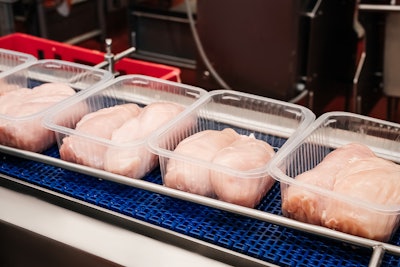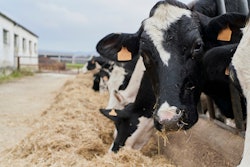
The FSIS has announced that it is withdrawing its proposed rule and determination titled “Salmonella Framework for Raw Poultry Products,” published on August 7, 2024, to further assess its approach for addressing Salmonella illnesses associated with poultry products. The agency determined that additional consideration is needed in light of the feedback received during the public comment period, which closed on January 17, 2025. Based on the input received from stakeholders, FSIS will evaluate whether it should update the current poultry Salmonella performance standards.
The FSIS proposed that raw chicken carcasses, chicken parts, comminuted chicken, and comminuted turkey products contaminated with certain Salmonella levels and serotypes are adulterated as defined in the Poultry Products Inspection Act (PPIA) (21 U.S.C. 453 et seq.). FSIS wanted to to establish final product standards based on these Salmonella levels and serotypes. The agency also proposed to revise the regulations in 9 CFR 381.65(g) that require all poultry slaughter establishments develop, implement, and maintain written procedures to prevent contamination by enteric pathogens throughout the entire slaughter and dressing operation to clarify that these procedures must include a microbial monitoring program (MMP) that incorporates statistical process control (SPC) monitoring methods, to require sampling at rehang instead of pre-chill, and to require that all establishments conduct paired sampling at rehang and post-chill. The FSIS also proposed to amend the recordkeeping requirements under 9 CFR 381.65(h) to require establishments submit microbial monitoring sampling results to FSIS electronically. FSIS had considered proposing to require that incoming flocks meet a predetermined target level for Salmonella at receiving.
Comments from stakeholders, particularly smaller poultry producers and processors, said that such an approach would impose an overwhelming burden on them. The FSIS says that the issues that generated the most comments, both positive and negative, included those associated with FSIS’ legal authority to propose the final product standards, the proposed Salmonella levels and serotypes for the final product standards, the proposed use of SPC monitoring, the scientific and technical information used to support the proposed framework, the potential economic impacts of the proposed framework, and the potential impact of the proposed framework on small poultry growers and processors.
The agency adds that it is going to "further assess its approach for addressing Salmonella illnesses associated with poultry products."



















